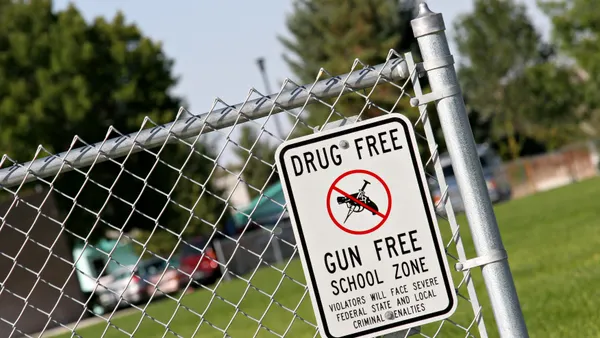Dive Brief:
- The National Parent Teacher Association plans a heightened focus on diversity, equity and inclusion, as well as whole child development as an approach to student success, under updated standards for family-school partnerships released Tuesday.
- The diversity, equity and inclusion changes include, among other things, suggestions that schools and PTAs should "identify and remedy power imbalances" in families' roles in decision making, work to eliminate bias in family engagement strategies, encourage involvement from historically marginalized groups and use linguistically and culturally responsive outreach, and remove economic and other barriers to family involvement.
- The updated standards come amid increased parental involvement as well as mistrust in politically charged decisions on COVID-19 school policies and curriculum choices. Contentious curriculum discussions have centered on "anti-critical race theory" movements and anti-LGBTQ campaigns, which some educators worry are led by the voices of a few but affect many.
Dive Insight:
Given the impact of COVID-19, "there could not be a more urgent time for strong family-school partnerships," National PTA President Anna King said in releasing the new standards.
King, in a statement, said the updated standards aim "to provide better support for schools and their communities as they address the impact of the pandemic, changes in educational and family engagement trends, shifts in community demographics, and the need for enhanced transparency and more equity-centered practices."
The new standards also include broadening school efforts to use standardized test results in a way that paints a "holistic and accurate picture of student progress using multiple measures." In addition, they share guidance with families about social, emotional and academic learning
The PTA update comes in the wake of newly released federal assessment data that paints a worrisome picture of student achievement post-COVID-19. Some education experts say parents are both unaware of and not worried enough about the impacts of the pandemic on student learning.
A survey released by Learning Heroes earlier this year, for example, shows a disconnect between student achievement reflected in federal and state test scores and parent perceptions. In that late 2021 survey of 1,481 parents, 92% said their child was at or above grade level in reading and math.
In reality, newly released scores on the Nation's Report Card showed significant dips in math and reading.
The new PTA standards also come after a spring 2022 survey of 1,483 households by the University of Southern California found low parent interest in learning recovery interventions like tutoring and summer school. Some hypothesize this is a result of burnout and not fully understanding the extent of the pandemic's impact on student achievement.
"This disconnect is worrisome to education decision makers because of the opt-in nature of many pandemic recovery programs: even if well-funded, such programs are unlikely to reverse much pandemic learning loss if interest and uptake among parents is low," the USC authors said.
The PTA standard updates expand "focus on school efforts to not just inform, but also hear from and respond to families" to support student success.
Nathan Monell, the organization's executive director, urged the implementation of the updated standards in all schools and districts.
The organization envisions roles for multiple stakeholders in the process:
- School board members should set the vision for family-school partnerships.
- State education agencies, superintendents and other district administrators should create policies and practices bolstering family-school partnerships.
- Principals should offer expectations, tools, resources and support for educators to create relationships with families.
- Educators should connect children's home lives to their school lives.
- Parent leaders should work together to advocate for change.
















